Bipartisan bill aims to expand sanctions on Iran’s energy sector

Two US lawmakers have introduced legislation aimed at tightening sanctions on Iran’s petrochemical trade, expanding restrictions on entities involved in the country’s oil exports.

Two US lawmakers have introduced legislation aimed at tightening sanctions on Iran’s petrochemical trade, expanding restrictions on entities involved in the country’s oil exports.
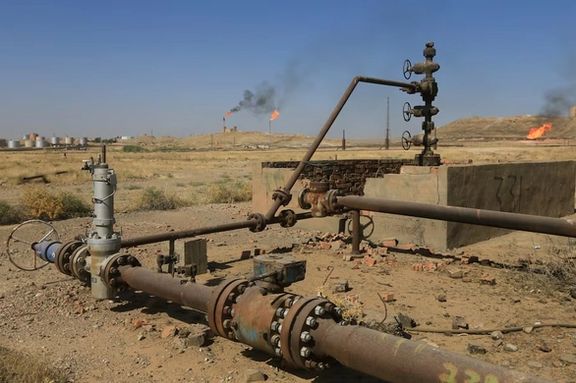
US President Donald Trump's administration is pressuring Iraq to allow Kurdish oil exports to restart to help offset a potential fall in Iranian oil exports, Reuters reported citing eight sources with direct knowledge of the matter.
Trump this month reinstated the so-called "maximum pressure" campaign on Iran from his first term, with the stated aim of driving its oil sales to zero.
Iraq’s oil minister announced on Monday that exports from the Kurdistan region would resume next week.
Sources cited by Reuters said Trump’s administration was a key driver behind the announcement.
Reuters cited two US administration officials confirming that the US had asked the Iraqi government to resume Kurdish exports. One of them said the move would help dampen upward pressure on oil prices, the report added.
"It's not only important for regional security that our Kurdish partners be allowed to export their own oil but also help keep the price of gas low," Reuters cited a White House official as saying.
Iran has been a major recipient of cut-price Kurdish oil. Last July, a Reuters report detailed how the closure of the pipeline transporting Kurdish crude to Turkey in 2023 led to an increase in oil smuggling to Iran, with an estimated 200,000 barrels per day being transported by truck.
In December 2024, Reuters also reported on a fuel oil smuggling network generating at least $1 billion annually for Iran and its proxies, which had flourished in Iraq since Prime Minister Mohammed Shia al-Sudani took office in 2022.
The US aims to cut this supply route as part of Trump's maximum pressure campaign, the report said.
"Washington is pressuring Baghdad to ensure Kurdish crude is exported to global markets through Turkey rather than being sold cheaply to Iran," Reuters cited an Iraqi oil official with knowledge of the crude trucking shipments crossing to Iran as saying.
Turkey’s Energy Minister Alparslan Bayraktar told Reuters that Turkey has not yet received any official notification from Iraq regarding the resumption of oil flows.
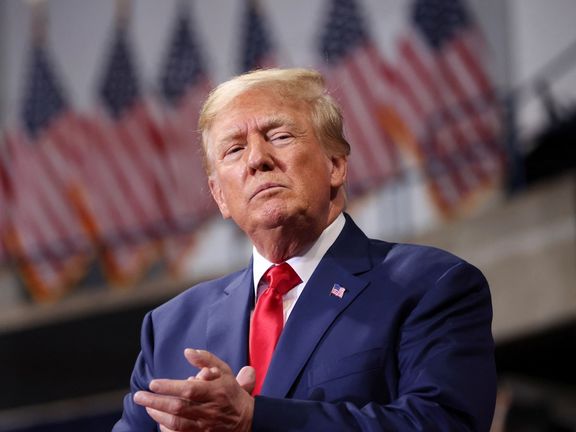
US President Donald Trump favors diplomacy over war but is determined to stop Iran from acquiring nuclear weapons, Secretary of State Marco Rubio said in an interview on Thursday.
“The president’s a peacemaker,” Rubio told independent journalist Catherine Herridge. “He’d prefer to avoid (war) and avoid those circumstances," adding that the United States under Trump “is not going to allow a nuclear Iran.”
Rubio did not discuss specific strategies but said that if Washington decided to act, “it could bring about the end of the Iranian regime,” in some of the most hawkish comments yet on Tehran from a senior member of the Trump administration.
Trump’s focus, Rubio said, remains on avoiding conflict.
As the world watches whether the US can achieve a deal with Moscow over the war in Ukraine, Rubio suggested the two countries may have a common interest in preventing Iran from becoming a nuclear power.
“There are things we could cooperate on geopolitically,” he said. “I’m not sure the Russians are fans of the Iranian regime having nuclear weapons.”
His comments come as US and Russian officials held their first discussions this week in Saudi Arabia on ending the three-year conflict.
Iran, which has sought stronger ties with Russia and China under Supreme Leader Ali Khamenei’s “Look East” policy, has faced economic strain due to US sanctions.
But Iranian media has warned that Moscow may not be a reliable partner and has raised concern that Russia could shift its stance.
Trump has criticized his predecessor, Joe Biden, for being too lenient on Iran and has reinstated the “maximum pressure” sanctions campaign from his first term.
While Trump has expressed reluctance to support an Israeli military strike on Iran’s nuclear program, he has also said he prefers a diplomatic agreement, a proposal that Khamenei has publicly rejected.
US intelligence reports cited by The Wall Street Journal and The Washington Post indicate that Israel sees Iran as vulnerable after October 26 airstrikes, which reportedly US and Israeli leaders say crippled Iran’s air defenses.
Israel, the newspapers reported, perceives the US as more open to military action against Iran under Trump’s leadership.
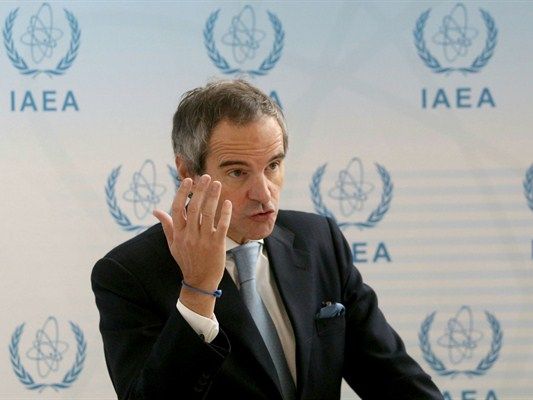
The International Atomic Energy Agency (IAEA) chief said on Thursday it was prepared to help Iran prove it did not seek a bomb, in comments Tehran blasted as politicized and a boon to adversaries.
"We want to make ourselves available, providing technically sound alternatives to eliminate the possibility that Iran develops a nuclear weapon, to prevent Iran, or to help Iran prove that they don't want to develop a nuclear weapon," Rafael Grossi told reporters at Japan’s National Press Club.
"We hear the government say that. But as somebody said, we trust everybody, but we need to verify. So until we can have a very, very comprehensive watertight system of verification, we will not be satisfied."
Iran denies seeking a nuclear weapon but the United States assesses that it seeks such a capability and Israel sees its arch-foe wanting a bomb to destroy it.
The Atomic Energy Organization of Iran issued a statement shortly after condemning Grossi's remarks as biased and inaccurate, saying "the burden of proof is on the claimant.”
"The IAEA director general, as a senior official of an important international organization, is expected to speak and act impartially, professionally, and without political bias," it said.
"At a time when the United States and certain Western countries are attempting to misuse the IAEA to exert unjust pressure on Iran, such politically motivated and unprofessional statements could serve as a pretext for their illegitimate ambitions.”
Time may be running out for a peaceful resolution to the nuclear standoff.
The Wall Street Journal and The Washington Post reported last week citing US intelligence findings from last month that Israel saw an opening for an attack on Iranian nuclear sites as early as the first half of this year.
Iran is involved in ongoing negotiations with the so-called E3 European countries - Britain, France and Germany - who were signatories of a now largely defunct 2015 international deal over Iran's nuclear program.
Supreme Leader Ali Khamenei said on Monday that Iran could fend off an attack by its enemies, after rejecting an overture from Trump for a deal over Iran's nuclear program, which Tehran says is peaceful but Israel insists aims at building a bomb.
JCPOA
Despite calling his recent visit to Iran constructive, Grossi said, “Iran is not still cooperating as we would like them to do.”
Grossi described a 2015 nuclear agreement, or Joint Comprehensive Plan of Action, as outdated and in need of a replacement albeit with a similar philosophy of Western economic incentives exchanged for Iranian curbing of enrichment.
"I discussed this with the foreign minister of Iran, Mr. (Abbas) Araghchi, maybe what you can have is the same philosophy of JCPOA, which is tit for tat. Which is, I restrain my activities in exchange for incentives - financial, economical or otherwise. But beyond this, I think it is no longer applicable," Grossi said.
"The JCPOA is an empty shell," Grossi added. "The JCPOA talked about one type of centrifuges but they have much more. They are enriching at 60% or almost weapon level, so it is a completely different nuclear program.”
The 2015 nuclear deal, signed by the Islamic Republic and six world powers, was aimed to limit Iran’s nuclear ambitions in return for sanctions relief. However, during his first term, US President Donald Trump withdrew from the agreement in 2018, reinstating sanctions.
In response, Tehran reduced its commitments, and in 2020, its parliament passed a law restricting IAEA inspections beyond the Nuclear Non-Proliferation Treaty.
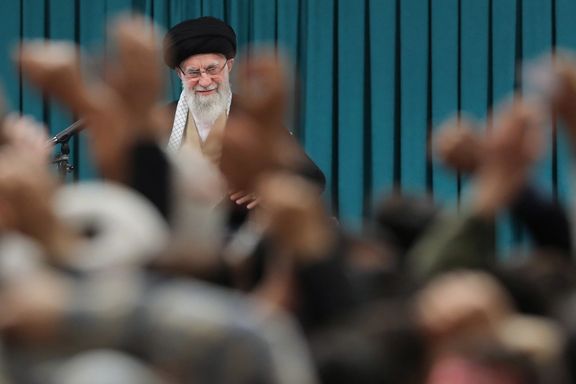
Iran’s supreme leader Ali Khamenei has dismissed talks with the United States but history shows that his defiance can be a strategic bluff as much as it may be a genuine rejection of negotiation.
On 7th February, Iran’s Supreme Leader unequivocally rejected negotiations with Washington, saying, “Negotiating with a government like the US is neither wise, nor intelligent, nor honorable."
Just ten days earlier, he had cautiously signaled openness to talks. This is what he said.
“We must be mindful of whom we are dealing with, whom we are trading with, and whom we are speaking to—this is something we must know. When a person understands the other party, they may still engage in a transaction, but they will know how to act. We must recognise and be aware.”
How should one interpret Khamenei’s stance on a potential engagement with the US under President Donald Trump? Two hypotheses come to mind.
First, he may secretly be open to negotiations but publicly rejects the idea to maintain a strong front. By doing so, he creates room for backchannel diplomacy while avoiding the perception of weakness.
Alternatively, he may see talks with Trump as an existential threat, believing that it would undermine Iran’s strategic position or ideological foundations. Refusing to talk, in this case, would be more than posturing but a firm line in the sand.
A Strategic Bluff
Strategic bluffing and covert negotiations with the US have long been a cornerstone of Iran's policy, stretching back to the days and weeks before the Islamic Republic was founded.
In 1979, secret negotiations between Iran’s revolutionaries and the United States helped facilitate Ruhollah Khomeini's return while preventing a military coup. Washington sought assurances for the safety of American citizens and the prospect of future cooperation.
Barely a year later, Iran’s foreign minister at the time, Sadegh Ghotbzadeh, held covert talks with President Jimmy Carter’s Chief of Staff, Hamilton Jordan, to negotiate the release of the Americans held hostage in the US embassy in Tehran.
Then came the secret arms deal widely known as the Iran-Contra affair, where the Reagan administration agreed to send American weapons to Iran via Israel.
More recently, Tehran and Washington negotiated secretly in 2013, paving the way for the eventual 2015 nuclear deal with the Obama administration.
The latest alleged instance is Elon Musk holding undisclosed discussions with Iran’s UN representative, Amir-Saeed Iravani, in New York—a reminder that, whatever the rhetoric, real negotiations often happen in the shadows.
As Supreme Leader, Khamenei remains above the law and outside the cycle of direct negotiations. Holding the title of Imam—a designation for the infallible leaders of the Islamic community after the Prophet, as recognized by the majority of Shia Muslims—he embodies both spiritual and political authority.
By positioning himself as both a sovereign and a holy figure, he can maintain consistency in his hostility toward the United States, allow negotiations with it, and when necessary, criticize Iran’s negotiators as if they weren’t under his command.
Anti-Americanism and Anti-Zionism have been cornerstones of the Islamic Republic from the outset. Khamenei’s ongoing enmity with the US is not just political; it is an ideological imperative.
And then there’s President Donald Trump’s patronizing attitude, which Khamenei may view as a direct challenge to his quasi-holy position—something he cannot afford to let pass.
A Genuine Refusal
On the very same day that he floated the idea of negotiating with Tehran, Trump also ordered a return to his so-called maximum pressure on Iran and expressed his desire to take over Gaza.
If these were to materialize, not only further Iran’s ailing economy would be crippled but the Palestinian dream of statehood would be crushed and Khamenei’s plans for a US-free Middle East would end in ruins.
Some, including the Israeli ambassador to the US, have stressed that the only effective way to halt Iran's nuclear ambitions is through a deal akin to the Libyan model, involving the total dismantling of Iran’s nuclear infrastructure.
This is perceived in Tehran as a precursor to regime change by armed force, as was the case with Libya in 2011.
Khamenei may believe he can withstand maximum pressure for another four years, holding out for an administration that’s less assertive with Tehran. The outcome of the US midterm elections could help him with that.
As a sovereign ruler above law, Khamenei grants himself the luxury of time, delaying decisions at will.
“We can only enter the dangerous game of negotiations with the United States when we have achieved the desired level of economic, political, and cultural strength, so that their pressures and propaganda cannot affect us," Khamenei said in 2018.
"However, at present, negotiations would undoubtedly be to our detriment and are strictly forbidden.”
The real danger now lies in prolonged uncertainty. With talks yet to start and the decision to negotiate still in limbo, the threat of war grows ever closer.
However, as long as Khamenei is confident that his absolute sovereignty and the sanctity of his position remain uncontested, the door to US-Iran talks may remain slightly ajar—though always at the risk of being slammed shut at any given moment.
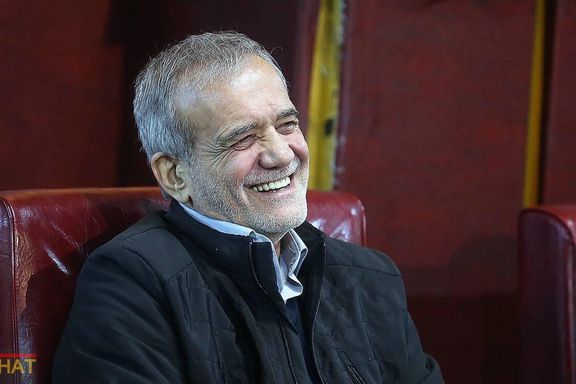
Hardliners in Tehran keep blaming other officials for Iran’s economic crisis, despite broad recognition that US sanctions and the state-controlled economy are the main causes of inflation and currency devaluation.
The dominant hardline faction in the Iranian parliament is pushing to impeach Economy Minister Abdolnaser Hemmati just six months into his tenure, despite the economic crisis dating back to 2018, when then-President Donald Trump withdrew from the JCPOA nuclear deal and imposed strict sanctions.
In a show of support for his embattled economic team, President Masoud Pezeshkian visited Central Bank Governor Mohammad Reza Farzin on Tuesday and met with Economy Minister Abdolnaser Hemmati on Wednesday, following the formal submission of the impeachment motion against him.
Nonetheless, Pezeshkian’s appearance in parliament to defend his ministers did not stop the impeachment process from moving forward.
Although the parliamentary session was confidential, hardline lawmaker Hamid Rasai secretly recorded part of the proceedings and shared the footage on social media. The video captured Rasai sharply criticizing Hemmati, Farzin, and Pezeshkian himself.
Qasem Ravanbakhsh, an ultraconservative MP from Qom, sarcastically told reporters that during the meeting, Pezeshkian tried to blame everyone but himself for the country’s economic problems.
In response, Pezeshkian shared a video of his meeting with the economy minister, emphasizing that key economic policies were collectively decided by the country's leadership. He said, “I told the Majles that all banking, monetary, and foreign exchange policies were approved at meetings of the heads of the three branches of government, with Hemmati and Farzin also present. The minister did not set these policies. If anyone is to be blamed for the economic problems, it’s us—the heads of the three branches of government. So, come and arrest us!”
“To blame only one person is unfair,” Pezeshkian added.
Leaving some in the room perplexed, Pezeshkian continued by reciting a verse of classic Persian poetry by South Asian poet Sir Muhammad Iqbal of Lahore (1877–1938). The lines—“Open your eyes to yourself and close your eyes to others. Learn how to see and hear differently.”—did little to address the economic crisis, leaving many unsure of his intended message.
The pro-reform website Rouydad24 attributed Iran's economic troubles to US sanctions and regional tensions, including conflicts with Israel and Trump’s recent move to tighten sanctions. The site overlooked deeper structural issues within Iran’s economy and the disorganized political system that have also fueled the crisis.
Conservative politician Ali Mohammad Namazi told Nameh News that "People need to be convinced that the country's problems can be solved. However, Pezeshkian has failed to assure them that this is possible."
"Iranians are suffering from longstanding issues, and only effective solutions can restore their confidence," he added.
Namazi also warned that "people can no longer tolerate the economic hardships. They are struggling to live normal lives, and public dissent is growing. They might wait in the hope of a government solution, but this patience won’t last forever. Eventually, they will be compelled to protest."
The politician emphasized the urgency for officials to act swiftly, noting that lifting sanctions is the only way to address rising prices and inflation. He warned that without prompt action, the situation could become unpredictable if the inflation rate exceeds 50 percent.
He argued that Pezeshkian cannot claim ignorance of the country’s problems, given his extensive political experience as a multi-term parliament member and a former cabinet minister.
Pezeshkian’s main political rival is ultraconservative Saeed Jalili, who, according to Khabar Online, has obstructed nearly every initiative the president has pursued since June. This includes efforts to ease the compulsory hijab rule to gain women’s support, lift the ban on social media to appeal to young Iranians, and initiate minimal economic reforms.
Yet, despite the significance of this political rivalry, it is not Pezeshkian's biggest challenge. His primary issue is his admission during the election campaign that he had no clear plan for governing the country. This raises the question of how he managed to secure votes, even from the minority of Iranians who participated in the lackluster election, despite openly acknowledging his lack of a strategic agenda.
During the televised debates before the June election, Pezeshkian asked Jalili, “What will you do if Trump wins the US election?” Jalili confidently responded, “I have a plan. What about you?” Pezeshkian replied, “I will consult with experts.” Yet, if he has any expert advisors, they seem to have offered little in terms of solutions for the current impasse.
Republican congressman Mike Lawler (R-NY) and congresswoman Sheila Cherfilus-McCormick (D-FL) sponsored the Enhanced Iran Sanctions Act, which seeks to close loopholes in existing measures and further cut off Iran’s key revenue sources.
The proposed sanctions would cover banks, financial institutions, insurance providers, ship registries and pipeline operators connected to Iranian petrochemical exports.
Citing data from energy consultancy Kpler, Bloomberg reported this week that Iranian daily oil export flows to top customer China had strongly rebounded this month, President Donald Trump's first full month in office.
The unexpected rise comes after traders worked around logistical hurdles thrown up by previous US-led sanctions on the exports, the news agency reported.
Trump reimposed the "maximum pressure" campaign of sanctions on Iran from his first term which aims to bring Iran's oil sales down to zero.
The proposed bill would ban anyone engaging in significant transactions with sanctioned entities could face US prosecution under the SHIP Act, which targets Tehran's oil exports in defiance of US sanctions.
“Our regional partners and allies in the Middle East are counting on us to stop Iran before it’s too late,” Lawler said in a statement. “The new sanctions imposed in the Iran Enhanced Sanctions Act will give us a broader ability to quash Iran’s illicit oil trade for good.”
The bill also mandates the establishment of an interagency working group under the State Department to coordinate sanctions enforcement and an international contact group to improve multilateral efforts. It further introduces a rewards program for whistleblowers who report sanctions evasion.
The bill follows previous Iran oil sanctions legislation sponsored by Lawler, which became law last year.
With Lawler and Cherfilus-McCormick holding key positions on the House Foreign Affairs Committee’s Middle East and North Africa subcommittee, the bill is expected to gain bipartisan support.